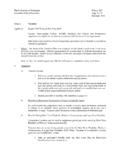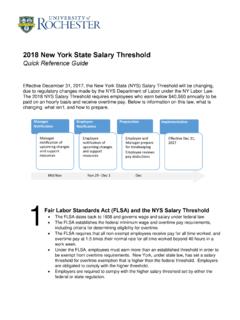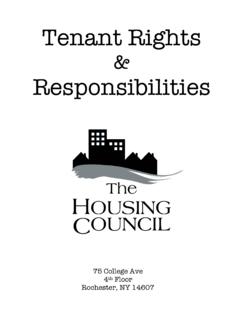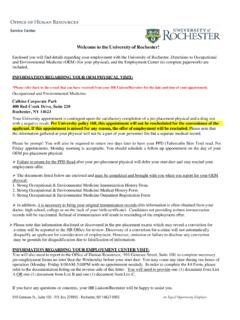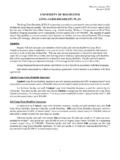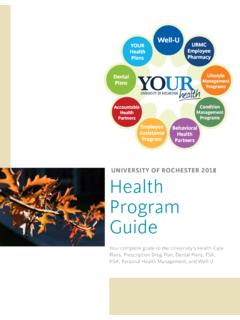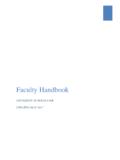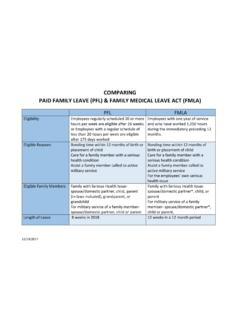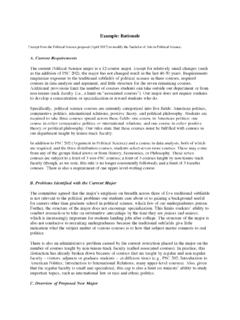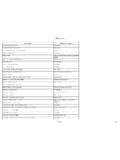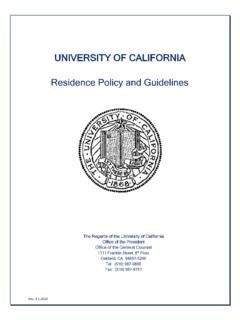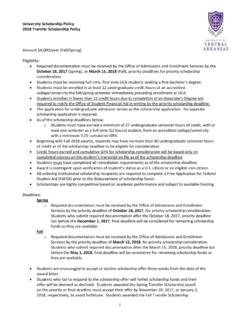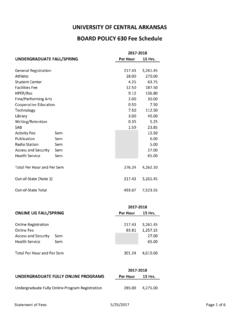Transcription of The University of Rochester Policy: 154 Personnel …
1 The University of Rochester policy : 154 Personnel policy /Procedure Page 1 of 4 Revised: 8/16 Subject: Corrective Discipline Applies to: All Staff I. policy : When an employee s conduct interferes with the orderly and efficient operation of the University , or an employee s performance does not meet the expectations or requirements of the job, the University may take corrective action. In some cases, it may be appropriate to consider progressive discipline, which provides the opportunity for employees to be warned of the seriousness of unacceptable behavior and the consequences if the misconduct continues.
2 However, the decision to use or not to use progressive discipline is solely within the discretion of the University . Nothing in this policy is intended to modify the at-will nature of employment, which means that either the employee or the University may terminate the employment relationship at any time. II. Guidelines: A. Corrective discipline options include, but are not limited to: Verbal warning to clarify the standards of acceptable conduct or performance, and consequences if the problem is not corrected.
3 Written warning which states the nature of the misconduct or performance deficit, what change is required, and the possible consequences if the problem is not corrected. Suspension: Time off without pay, which could range from the balance of a shift to five or more workdays. For exempt staff, in most cases, suspension can be only in increments of a full workweek. Discharge: Termination of employment relationship, with or without notice. Note: If an employee s performance does not meet standards a corrective action plan should be implemented in correlation with warnings.
4 B. Review of Proposed Disciplinary Actions: 1. Supervisors may take corrective action in the form of a verbal counseling or written warning without consultation from Human Resources. Where corrective action is expected to involve time off without pay, or discharge, the department head and the Office of Human Resources shall be consulted before the corrective action is taken. Note: Employees represented by a collective bargaining unit should refer to their agreement.
5 2. In some cases it may be inappropriate to have the employee remain at work during an investigation of the misconduct. The supervisor may indefinitely suspend the The University of Rochester policy : 154 Personnel policy /Procedure Page 2 of 4 Revised: 8/16 employee pending investigation until the investigation is completed and specific corrective action if warranted is determined. However, notice of the suspension must be provided to the department head and to the Office of Human Resources as soon as possible.
6 The indefinite suspension procedure allows the supervisor time to collect and consider the facts, and to review contemplated action with his or her supervisor and/or the Office of Human Resources. If any lost time discipline imposed the time on indefinite suspension would be part of the suspension. C. Documentation: Written documentation indicating the dates of infractions or the specifics describing the performance deficit should be given to a staff member receiving a written warning, suspension or termination.
7 The memo/letter should be addressed to the employee with copies sent to Employee Records, PO Box 278829 for placement in the Personnel file as well as the department file. In the case of verbal warnings, a note should be placed in the department file documenting the date and subject of the verbal warning. Supervisors should retain notes documenting all such actions. D. Types of Misconduct and Suggested Corrective Action: To facilitate consistency, this outline of types of misconduct and suggested corrective actions will serve as a guide.
8 These are not prescribed actions - - they are suggestions only. Nor is the list of infractions below inclusive. There are no automatic measures of discipline. Every case is to be treated on its own merits, taking into account the seriousness of the infraction and the nature of the circumstances, as well as the employee s work record. Certain forms of misconduct may be minor enough initially to warrant efforts at corrective discipline through, for example, counseling and/or a written warning.
9 However, depending on the circumstances this type of conduct may warrant different or additional discipline up to and including termination. Examples of this type of misconduct include: Unreported absence Excessive unscheduled absences Excessive tardiness at start of shift or after breaks Improper care or use of University property (Note: this also includes all electronic information systems, , computer, Internet, email, telephone, fax, copier, etc. The University reserves the right to monitor all electronic information systems.)
10 Failure to record or improper recording of time (without apparent intent to defraud) Failure to follow personal safety rules Leaving work area during work time without authorization The University of Rochester policy : 154 Personnel policy /Procedure Page 3 of 4 Revised: 8/16 Wasting time, loitering Failure to properly or completely perform job tasks Failure to follow dress code Failure to follow University Parking policy and guidelines Other types of misconduct are so severe that except in unusual circumstances, discharge is warranted.
